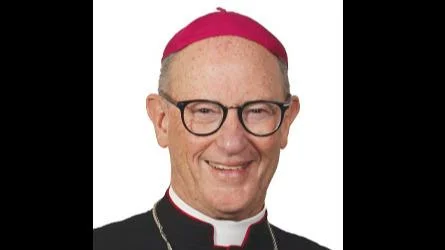
Revered Carl A. Kemme, D.D. Bishop | Diocese of Witchita
People have found a simple way to express their trust and devotion in the search for an encounter with God. When faith is integrated into popular culture, religiosity emerges in forms and expressions driven by the people who embrace it and the reality in which they live.
Popular Piety was once viewed with suspicion, but following the Second Vatican Council, it has been revalued. Paul VI, in his Apostolic Exhortation Evangelii Nuntiandi, emphasized that popular piety “reflects a thirst for God that only the poor and simple can know” and that it “makes one capable of generosity and sacrifice, even heroism when it is a matter of manifesting the faith.” Pope Benedict XVI also noted its significance in Latin America as “a precious treasure of the Catholic Church and that in it appears the soul of the Latin American peoples.”
The Aparecida Document highlights the riches unfolded by the Holy Spirit in popular piety. In Latin America, where many Christians express their faith through popular piety, bishops refer to it as “popular spirituality” or “popular mysticism.” It is described as a true “spirituality incarnated in the culture of the simple,” discovering and expressing content more through symbolism than instrumental reason. It is seen as a legitimate way of living faith, feeling part of the Church, and being a missionary; bringing with it grace through acts like pilgrimages: walking together to shrines or participating in other manifestations of popular piety is considered an evangelizing gesture.
Popular Piety holds an active evangelizing force due to its roots in inculturated Gospel teachings. Ignoring this would overlook the work of the Holy Spirit. Instead, there is a call to encourage and strengthen it to deepen inculturation—a continuous process. These expressions teach us much; for those who understand them, they are theological places deserving attention when considering new evangelization efforts, as mentioned by Pope Francis in his apostolic exhortation Evangelii Gaudium.
In Wichita's Diocese, Popular Piety manifests at different times and places through expressions like processions, dances, posadas, and Stations of the Cross representations by Hispanic communities. These activities require welcoming support and formation.
The Missionary Catechists of the Poor accompany these expressions seeking integration into ecclesial communities so they become purified manifestations free from ideas contrary to faith while fostering true encounters with God. This commitment enriches church life with joy and unity.






 Alerts Sign-up
Alerts Sign-up